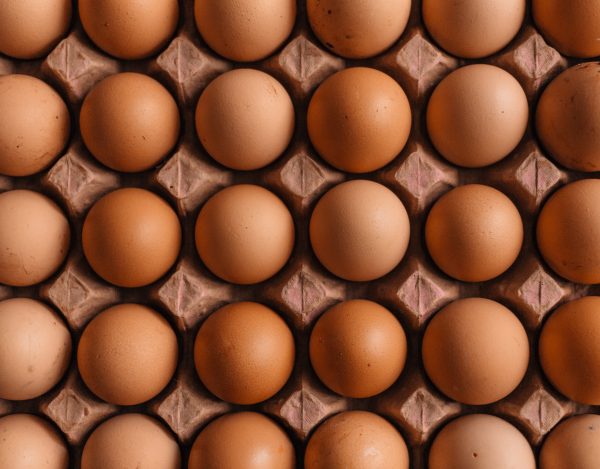
The thought of spoiled milk or eggs is a cringe-worthy one. Many preppers, when stocking their emergency pantry, resolve to just skip over these items entirely because there’s no way to effectively store them long-term. The good news is that they’re wrong. While it can be a bit tricky at times, there are a few different tried-and-true methods to store these dietary staples, and we’re here to show you how.
Freezing and Canning Milk
Any type of milk can be frozen for up to three to six months. The process does cause some separation, though (particularly in whole-fat milk), so make sure to shake it thoroughly after defrosting.
It’s best that you freeze your milk when it’s freshest to ensure the best quality. Also make sure that it’s already cold when you put it in the freezer- if you’re using farm-fresh milk, give it time to cool after bringing it in from the barn.
To begin the process, pour the milk into multiple small, airtight containers (glass canning jars work well), and leave room in each one for expansion (milk expands 10 percent when you freeze it.) Small containers will not only freeze and thaw more quickly, but they will allow you to defrost only as much as you need at one time without spoiling the rest. Once all your containers are ready, store them deep inside the freezer to prevent any accidental or partial thawing.
Canning milk takes a little more work and requires a pressure canner. First, sterilize your canning jars and check them for any cracks or nicks. Fill the jars, leaving a half-inch space at the top, then wipe the rims clean and cap them with the sterilized rings and lids.
Next, follow the directions for your pressure canner and keep a close watch on it; they can be slightly unpredictable. After the boiling period, take the canner off the heat and let it sit for one hour. Once the hour has passed, remove your jars from the canner and place them on top of a towel or a pile of newspaper. Cover the jars with another towel and leave them to sit untouched in a draft-free location overnight.
Check for leakage in the morning, and if there is any, don’t store those jars. Move the rest of your jars to a cool, dark storage place. Your canned milk (essentially evaporated milk) will last for approximately a year, and you’ll just need to add water once you decide to use it.
Freezing and Drying Eggs
Again, freezing is relatively simple. Crack all of your eggs into a bowl and then whisk them like you’re making scrambled eggs. If you prefer, you can separate your whites and yolks before whisking and then freeze them separately. Pour the eggs into a standard ice tray- one cube is about equal to one egg- and then put the tray in the freezer.
After the cubes are frozen solid, you can transfer them into an airtight container or zippered bag. These will keep in the freezer for about a year.
To dehydrate, pour a dozen chicken eggs (or ten duck eggs, since they’re bigger) into a blender, food processor, or whisking bowl. Put a fruit tray insert into your dehydrator tray, or wrap the tray with cling wrap, and then pour the egg mixture until the tray is half full. If you fill it too much, it may not dry evenly and will take longer to finish.
Set your dehydrator to the ‘fruit and vegetable’ setting, or approximately 135 degrees, and leave the trays in for seven to nine hours. The exact time will depend on the power of your dehydrator. When the eggs are finished, they should have the look and texture of peanut brittle. Pat away any excess grease you find on the surface.
You can store the flat eggs in a jar or an airtight plastic bag, or you can powder them (running them through a blender or crushing them in a bowl) and store them that way. To rehydrate them, combine one tablespoon of dried eggs to two tablespoons of room temperature water and then allow them to sit for a few minutes before using them as normal.
With all that said, don’t fall into the ‘only meat and grains’ trap that so many preppers unwittingly place themselves in due to a lack of knowledge. Don’t deprive yourself of the nutritional benefits (eggs are a great source of protein) when these items can be stored about as easily as the others!

